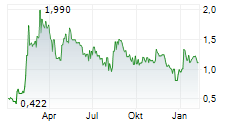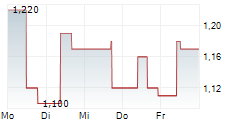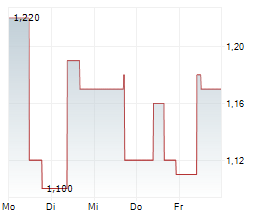LION delivered solid Q3 results. Here are the key takeaways:
Q3 sales came in at € 5.9m, largely in line with expectations (eNuW: € 6m) implying a 10.6% yoy decrease. 9m sales of € 16.3m grew by 31% yoy. This was largely driven by the company's Mobility segment, which benefitted from a broad demand recovery following a particularly weak 2024. Mind you, last year was marked by several customers' insolvencies, pricing pressure and overall subdued end market demand.
More importantly, Q3 strongly underpinned the successful profitability turnaround as EBITDA improved from € -1.3m to € 1.2m (20.3% margin). 9m figures paint an even stronger picture as EBITDA reached € 2.4m (vs. a € 6m loss last year). This is partially driven by higher sales but also ongoing tight cost control across the group.
In accordance with the top- and bottom-line improvements as well as high visibility on a strong Q4, management confirmed its FY guidance of € 28-35m sales (eNuW: € 32m) and positive EBITDA (eNuW new: € 2.8m). In our view, this should allow the company to return to EBIT profitability.
BESS to accelerate from FY26e onwards. While BESS is likely to play only a minor role in the FY25e sales mix, this should change from next year on. In fact, LION received its first order from the cooperation with LEAP Energy. This first order encompasses a 5 MW/20MWh storage system to be delivered in Q1 2026 and should pose a revenue potential of some € 750k, in our view. More importantly, LION highlighted a total project pipeline of >7.5 GWh (not yet signed), which could translate into roughly € 280m of revenue potential (eNuW) for the company. EBITDA margins for BESS projects should be in the double-digit range (NuW: 10-15%).
Further, LION announced a new partnership of its subsidiary LION Smart Production GmbH with Castrol, a producer of cooling fluids, in order to jointly develop a new high-performing battery module for EV applications (e.g. car, truck, BESS) with implemented enhanced battery thermal management. This could enable faster charging and discharging time in the product. Castrol ON EV Thermal Fluids are useful for enabling ideal heat dissipation, which aids in improving the power density, the product lifecycle and the safety of the battery pack. While this is still a R&D project it does offer long-term revenue opportunities. Mind you, the immersion cooled battery pack that is being development for and with a German truck OEM remains ongoing.
Our take: LION's Q3 performance came in roughly as expected yet marked by a strengthened bottom line. While new development partnerships and initiatives require R&D time and resources to materialize into tangible improvements in the mid-term, first orders for its BESS offering could already positively impact operations in the short-term, further cementing the operational turnaround throughout 2026. Yet, clear visibility on when large BESS orders come through remains somewhat clouded as regulatory approvals for the projects are the key bottlenecks.
BUY with a slightly raised PT of € 3.20 (old: € 2.90).
ISIN: CH0560888270


